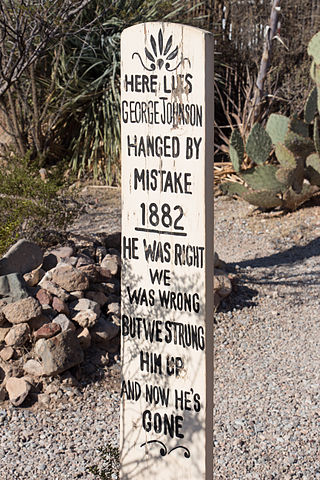Miscarriage of justice
conviction and punishment of a person for a crime they did not commit From Wikipedia, the free encyclopedia
Remove ads
Miscarriage of justice is when a lawsuit ends with a result that is unfair, or wrong.[1] One example of this is when a person is found guilty of a crime they did not commit.[2] These miscarriages of justice are also known as wrongful convictions. People have spent years in prison, before the error was found. The sentence can be overturned, if there's new evidence that was not known at the time of the trial. Trials have to follow a given schema. If it is found that police or prosecutor committed some kind of misconduct at the original trial, the sentence may also be undone.

Remove ads
Things that contribute to a wrongful conviction
The following can contribute to a wrongful conviction:
- Eyewitness accounts are unreliable. They are responsible for up to 70% of the wrongful convictions. Studies have shown that the way police lineups are done can change an eyewitness's memory of the suspect and this often leads to misidentification.[3] Witnesses also have difficulty making accurate identifications with suspects from different ethnic groups. The "the rate of mistaken identification is significantly higher than most people tend to believe".[4] Elizabeth Loftus, a leading researcher in the field, says memory is so unreliable "the end result can be a highly confident witness testifying in a persuasive manner at trial about a detail that is completely false".[5]
- Pieces of evidence may be contaminated, while they are packaged or transported. Contamination can be introduced unintentionally by material that was not present when the crime was committed by anyone entering the crime scene after the event. This may be uninvolved witnesses who may become suspects, and by emergency responders, fire fighters, police officers and crime scene investigators themselves.[6] Evidence can also be contaminated when it is being analyzed or stored. A miscarriage of justice can occur when procedures to prevent contamination are not carried out carefully and accurately.[7]
- There may be errors, when analyzing forensic evidence.
- There may be false confessions. The Innocence Project found false confessions contribute to approximately 25% of wrongful convictions in murder and rape cases.[8] Some people are more vulnerable to making a false confession under police pressure. This includes individuals who are intellectually impaired, and those who suffer from mental illness. Saul Kassin, a leading expert on false confessions, says that young people are particularly vulnerable to confessing, especially when stressed, tired, or traumatized.[9]
Remove ads
References
Wikiwand - on
Seamless Wikipedia browsing. On steroids.
Remove ads
